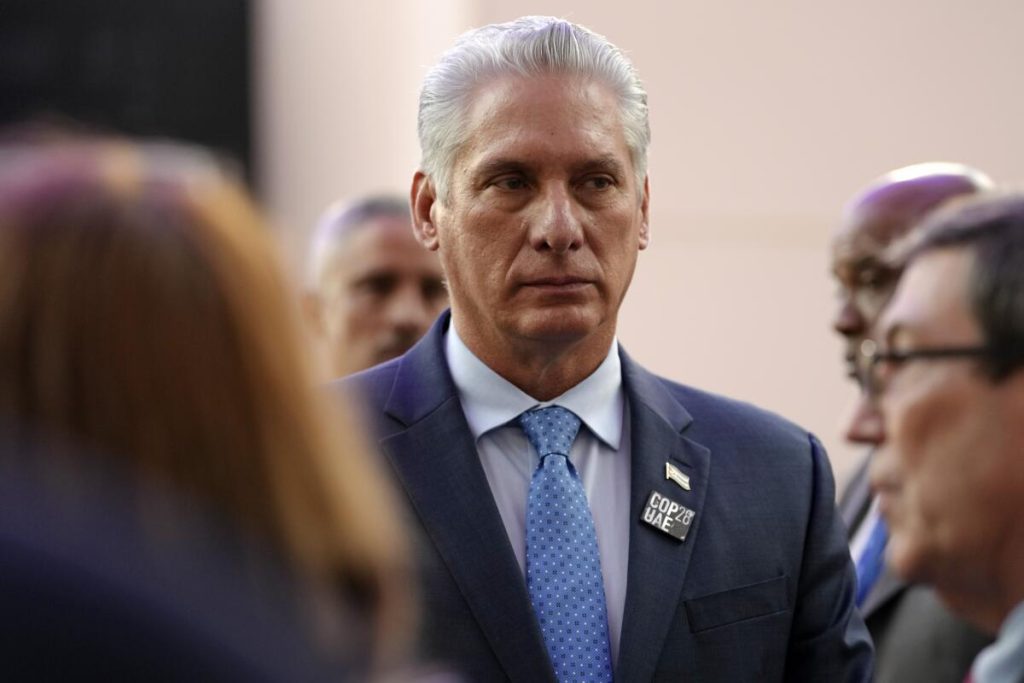Small groups of demonstrators have come to the streets of Santiago, in eastern Cuba, to express their displeasure about power outages that sometimes last up to eight hours throughout the Caribbean country.
HAVANA — On Sunday, small groups of demonstrators protested about eight-hour power outages and food shortages throughout Cuba in the eastern city of Santiago.
Social media videos featured protestors outside the city, which is roughly 500 miles (800 kilometers) from Havana.
The U.S. Embassy in Havana stated there were rumors of protests in numerous other regions on the island, while state media confirmed the protests in Santiago. In a social media post, Cuban President Miguel Díaz-Canel also mentioned protests, but he did not say where They took place.
“Several people took to the streets” to protest “due to the long hours of power outages from lack of fuel and other situations arising from the current economic crisis,” according to a report on events in Santiago by the government-affiliated news agency El Necio.
Cuba is currently dealing with one of its biggest energy and economic crises ever. In recent weeks, waves of blackouts have gotten worse, exacerbating the island’s communist government’s growing discontent with food shortages and inflation that have made life more difficult. Many of the hundreds of thousands of migrants are on their way to the United States.
Cubans on and off the island rapidly posted videos of people screaming “Electricity and food” on sites like X and Facebook.
One person claimed that following the protests, internet connectivity in the area had been cut off, speaking to The Associated Press over the phone under the condition that their identity not be revealed. Internet problems in Santiago were also reported by a number of users on the social network X.
The internet has grown in importance in Cuba in recent years as a means of facilitating and disseminating news about anti-government demonstrations, but it has also been exploited to propagate misleading information about purported events.
It was most famously utilized in 2021 during the large-scale protests that resulted in widespread internet outages and the imprisonment of some protesters. Food and power shortages also contributed to those protests.
Cuba’s president charged anti-government “terrorists” in the evening, claiming they were accused with igniting the demonstrations, claiming that their acts were “encouraging actions against the internal order of the country.”
Numerous individuals have conveyed their discontent regarding the state of the food distribution and electrical supply. Díaz-Canel wrote on X that “the enemies of the Revolution are using this context to destabilize” the administration.
In a message on its Facebook page, the U.S. Embassy asked the Cuban authorities to respect the protests.
It stated, “We are aware of reports of peaceful protests in Granma, Santiago, Bayamo, and other parts of Cuba.” “We implore the Cuban government to honor the demonstrators’ human rights and address the justifiable needs of the Cuban people.”

